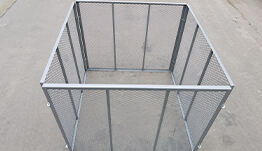Diet tips for dogs
When it comes to your dog's diet, making sure to provide a balanced and nutritious diet is essential for your dog's health and well-being. The following will detail the dog diet secrets, I hope to help you.
Pet trivia
Balanced nutrition
A dog's diet needs to contain enough protein, fat, carbohydrates, vitamins and minerals. Choose a high quality commercial dog food and make sure it contains the right amount of various nutrients. In addition, you can add a moderate amount of fresh vegetables and fruits as a snack or supplement, but be aware that some human foods are toxic to dogs, such as chocolate, Onions, etc., so be sure to choose foods that are safe for dogs.
Watch your diet
According to the dog's age, weight, activity level and health status, determine a reasonable daily diet. Adult dogs usually need between 1/2 and 1 cup of food per day. If you choose to feed dry dog food, feed it according to the recommended breeding amount on the packaging. At the same time, pay close attention to the dog's weight changes, adjust the amount of diet according to the actual situation, to avoid excessive obesity or underweight.
Timing quantification
Regular and quantitative feeding can help dogs develop good eating habits. In general, adult dogs eat twice a day, once in the morning and once in the evening. For puppies, more frequent feeding may be required. Regular, quantitative feeding can help your dog maintain a healthy weight, and it can also help you spot possible eating problems in time.
Food safety
It is vital to ensure that dogs are provided with safe food and water. Avoid feeding spoiled food and make sure your water source is clean and fresh. In addition, it is important to carefully control the speed of your dog's food, consider using slow eating devices or feeding in batches to avoid swallowing problems or digestive problems caused by eating too fast.
Beware of food allergies
Some dogs may be allergic to certain foods, such as eggs, beef, wheat, etc. If you find that your dog has symptoms of food allergy, such as itchy skin, vomiting, diarrhea, etc., you should contact your veterinarian in time to adjust your diet and control the allergy symptoms.
Obesity prevention
Dogs are prone to obesity, which can lead to health problems such as arthritis and heart disease. Therefore, it is important to control food intake, avoid excessive snacks, and ensure that dogs are getting enough exercise to help them maintain a healthy weight.

 EN
EN AR
AR
 NL
NL
 FI
FI
 FR
FR
 DE
DE
 IT
IT
 JA
JA
 NO
NO
 PT
PT
 RU
RU
 ES
ES
 SV
SV
 TR
TR

